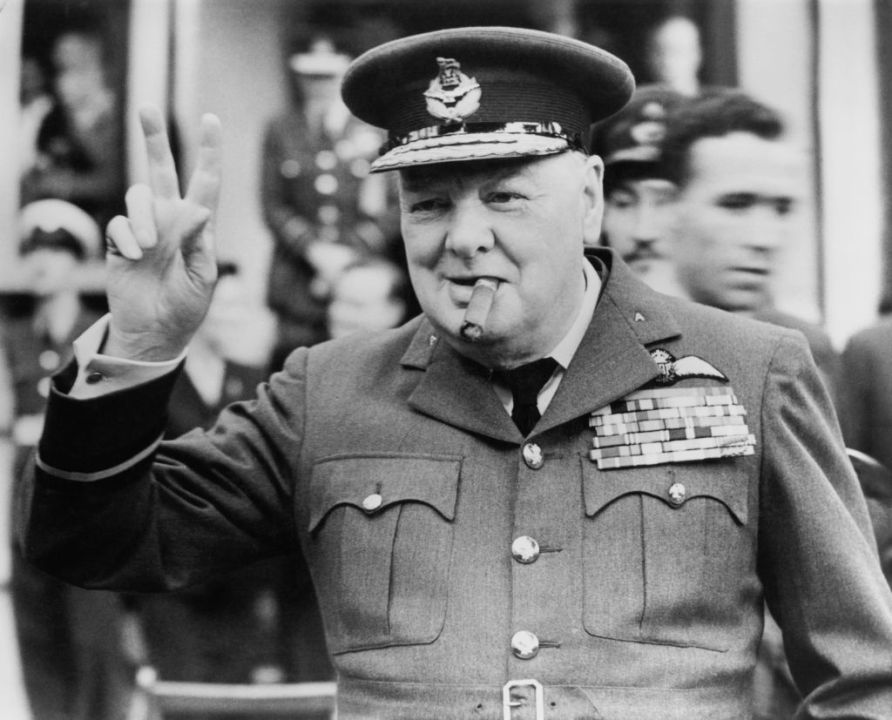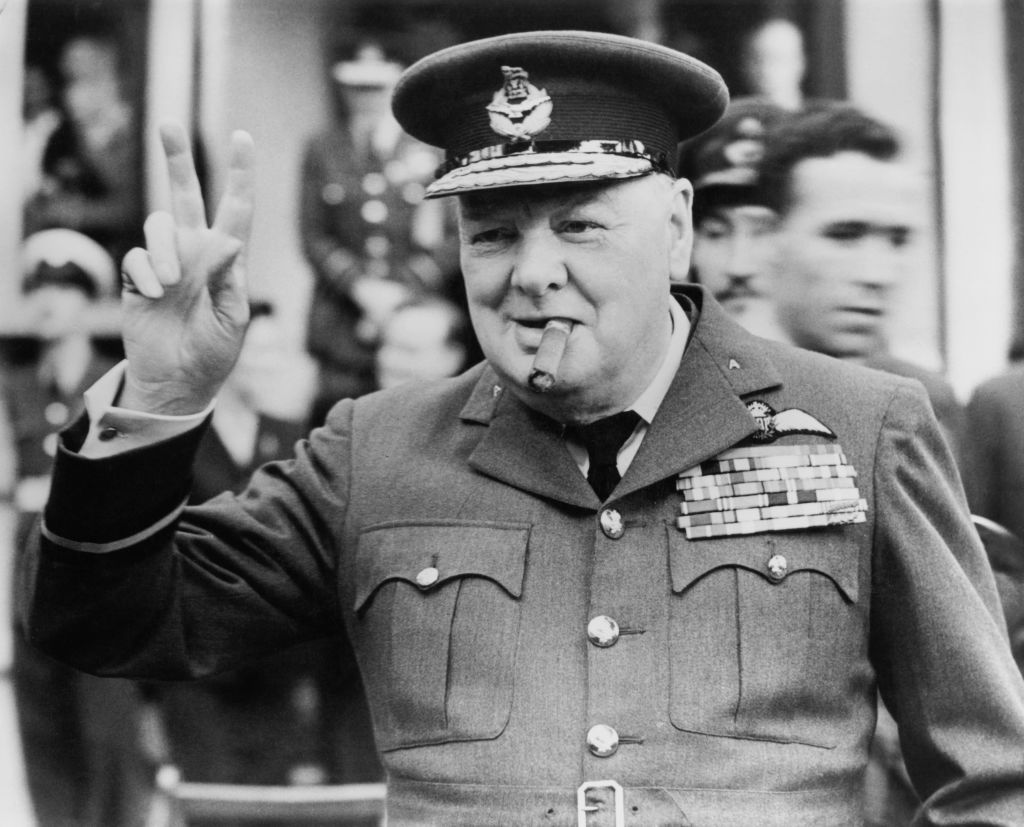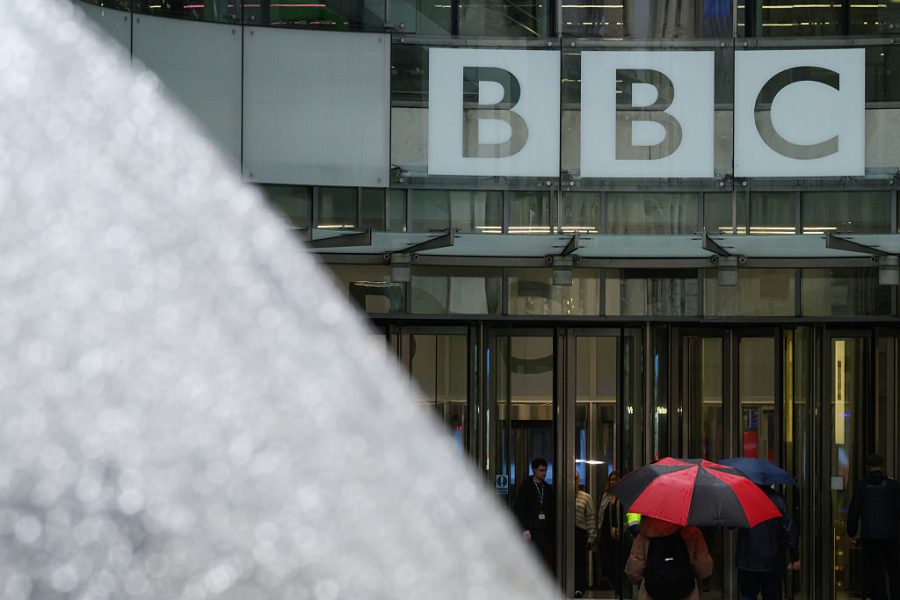Winston Churchill is one of Britain’s enduring symbols. His relentless drive, deep conviction and steadfast leadership means that he remains admired by millions around the globe. Yet for years, the political mainstream has been compelled to defend his memory from spurious attacks from the left, such as John McDonnell calling him a ‘villain’. Depressingly that threat – and the same pernicious desire to denigrate our nation’s greatest hero – can now be found on the right.
The aim is not simply to manipulate the public’s view of Churchill, but through his denigration to create the intellectual space for their other pernicious ideas to flourish
Spawned from a sinister fringe of the American ultra-MAGA movement, these views have been propagated to millions. Tucker Carlson, the former Fox News host and popular podcaster, hosted the pseudo-historian Darryl Cooper in an episode that has attracted over 33 million downloads. Cooper made a series of absurd and ahistorical claims – including that Churchill was ‘the chief villain’ of the second world war – while actively downplaying Nazi atrocities in eastern Europe.
Carlson and Cooper are not alone. Major figures of the US online right, from Candace Owens to Dave Smith, have either backed Cooper or engaged in their own rewriting of the history of the second world war. Grokipedia, Elon Musk’s new AI alternative to Wikipedia, has an entry on Sir Oswald Mosley which states that ‘recent reappraisals’ have validated his ‘policy prescience’. Mosley was the leader of the British Union of Fascists; the clue to his policy ideas are obvious in the name of his organisation.
Nor, sadly, is such revisionism confined to the United States. A new online fringe in Britain – from former Reform UK party candidate Ian Gribbin and party advisor Jack Anderton, to the popular contrarian podcast Lotus Eaters – have dabbled in revisionism of Churchill’s life, actions and legacy from an ultra-right perspective, essentially arguing that Britain should not have fought the second world war. Of course, such views have been expressed in the past by Pat Buchanan, Alan Clark, John Charmley, David Irving and even Maurice Cowling, but were always niche. Today they are turbo-charged by tens of millions of people on social media. This new strain of ahistorical US-led Churchill scepticism must not be allowed to establish a bridgehead in British politics.
As my and Zachary Marsh’s new report for Policy Exchange, ‘Defender of the West’, argues, these critiques consistently misrepresent or manipulate the historical record to present myths about Churchill as fact, such as that he was behind the decision to offer a guarantee to Poland in April 1939, when in fact he was a backbench MP and in no decision-making role. (Nonetheless it was the correct decision of Neville Chamberlain’s government). Or that it was Churchill who initiated civilian bombing raids, despite the fact that they had been a central part of Nazi military strategy since Guernica in the Spanish Civil War.
The repeated assertion by these critics that Churchill’s ‘warmongering’ sustained an unwinnable war – forgetting it seems, that the Allies ultimately triumphed – is intended to suggest that Britain should instead have made peace with Hitler in 1940. Yet Hitler routinely breached every single agreement he ever signed, from the Munich Agreement to the Anglo-Germany Navy Treaty to the Nazi Soviet Pact. That he could be trusted to leave Britain and her empire alone is of the same naïve school of appeasement that Churchill himself rightly fought throughout the 1930s. He understood that a European continent dominated by any power – and particularly by Nazi Germany – was incompatible with Britain’s international interests as much as her values. Lebensraum did not just apply to the east.
Rebutting Churchill revisionism is not only important for protecting the principles of good scholarship and evidence within the academy, but is also essential because this transatlantic fringe is determined to expand its influence over insurgent right-wing populism both in America and Europe. In doing so, the aim is not simply to manipulate the public’s view of Churchill, but through his denigration to create the intellectual space for their other pernicious ideas to flourish, specifically that isolationism and nativism should triumph over internationalism and interventionism.
By blackening Churchill’s name (and of course that of President Franklin Roosevelt), the ultra-MAGA ideologues, several of whom have been disavowed by President Trump himself, hope to damage the cause of anti-totalitarianism more widely, to the benefit to Vladimir Putin. The attack on Churchill is not just an ivory tower spat; it is profoundly connected to calls for the West to rip up the postwar international order that Churchill helped build.
In recent weeks, most notably with the fallout from Tucker Carlson’s interview with the foul Nick Fuentes, fuelling civil war in MAGA-land and at the influential Heritage Foundation – where I have given speeches in the past – we have seen how this same fringe has embraced anti-Semitic and white supremacist rhetoric. These views are infused with admiration for the authoritarian strongmen who would thrive in a world where countries like Britain and the United States abrogated their responsibilities towards smaller democracies. Gribbin, whilst standing for Reform UK in 2024, even combined his criticism of Churchill with praise for Putin, saying, ‘If only the West had politicians of his class’.
Historical debate and discussion of the merits of Western internationalism are necessary and healthy for our discourse. Yet they must be routed in facts, evidence and made in good faith. These attacks on Churchill, our greatest Briton, seek to present our nation’s sacrifice and achievements in the second world war as an entirely pointless endeavour, which justifies a new isolationism. Rational, decent, conservative-minded people of all parties and movements should be steadfast in rejecting such dangerous ahistorical rubbish.
Lord Roberts of Belgravia is the co-author of Policy Exchange’s new report: ‘Defender of the West: A response to attacks on Churchill’s life and legacy’








Comments